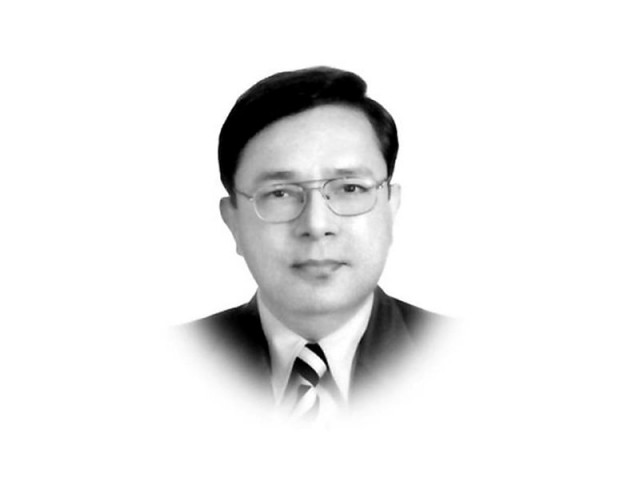Elections: myth and reality
In my opinion, the highest form of rigging is an attempt to keep people uneducated, ignorant and dependent.

The writer is a PhD Scholar at West Virginia University in the US
As far as qualifications of a candidate in developed democracies are concerned, there are only two qualifications — the lower age limit and the nationality/residency. For the voter, adult franchise is the only rule. There is no other eligibility criterion. It is also believed in Pakistan that the children of politicians should not succeed them as politicians because it is against the ideals of democracy. However, this practice is common in the West. In developed democracies, ‘political families’, such as the Rockefellers, the Kennedies and the Bushes, have played a significant part in US politics. It is also naive to think of a parliament that is packed with ‘common’ people. ‘Ordinary’ or ‘poor’ people are not found in any parliament of the world. Electoral politics is always the job of a ‘few’, not of ‘many’. The reason is simple — ordinary people have neither the money nor the time for politics.
The allegation of massive ‘rigging’ in elections is also untrue. By and large, all elections in Pakistan were fair and free, including the 1977 one. For evidence, just see the record of post-election ‘electoral complaints’ filed in the Election Commission of Pakistan (ECP) by the losing candidates. Take the example of the 2002 elections; the ruling coalition had formed the government by a one-vote margin only. In my opinion, the most crucial person who can ensure a free and fair election is not the chief election commissioner, the caretaker prime minister or governor, but the polling agent of the candidate. Rigging is technically not possible on election day if the polling agents are active and vigilant. Let me clear one more anomaly: practices that are considered illegal or unfair in Pakistan i.e., pre-poll rigging, such as the use of money, transfers, gerrymandering, jobs, development projects etc. are considered constitutional/legal in developed democracies. Ultimately, it is the discretion of the people to choose whom they like the most.
Pakistan Tehreek-e-Insaf leader Imran Khan has extra-constitutional expectations from the ECP. His demands regarding the president’s resignation and the dismissal of the ECP are unconstitutional. He basically wants the disqualification of ‘electables’ of the two major political parties, the PPP and the PML-N. Pakistan has a history of such attempts when different regimes used various tactics to disqualify politicians, such as the Public and Representative Office Disqualification Act 1949, the Elected Bodies Disqualification Act 1959, non-partisan elections by General Ziaul Haq, the degree requirement by General (retd) Pervez Musharraf and the dual nationality requirement. This time, some forces are prepared to stretch Articles 62 and 63 of the Constitution in order to disqualify ‘electables’. These forces are confident that the courts will certainly disqualify President Asif Ali Zardari in the dual-office case on contempt charges after the dissolution of the assemblies.
In my opinion, the highest form of rigging is an attempt to keep people uneducated, ignorant and dependent. Election is a way to obtain the free opinion of the people. Freedom of the people takes many forms, including freedom of thought and of action. If voters are in chains everywhere, how will they be able to use their right to vote freely? I will give you one example. For people in a society like ours, the ‘vote’ is not more precious than ‘valuables’. When people can easily give their hard-earned income to extortionists, then giving their vote to these rascals is not a big deal either. But our focus is always on fair and free elections, not on fair and free voters/people.
Published in The Express Tribune, February 19th, 2013.















COMMENTS
Comments are moderated and generally will be posted if they are on-topic and not abusive.
For more information, please see our Comments FAQ